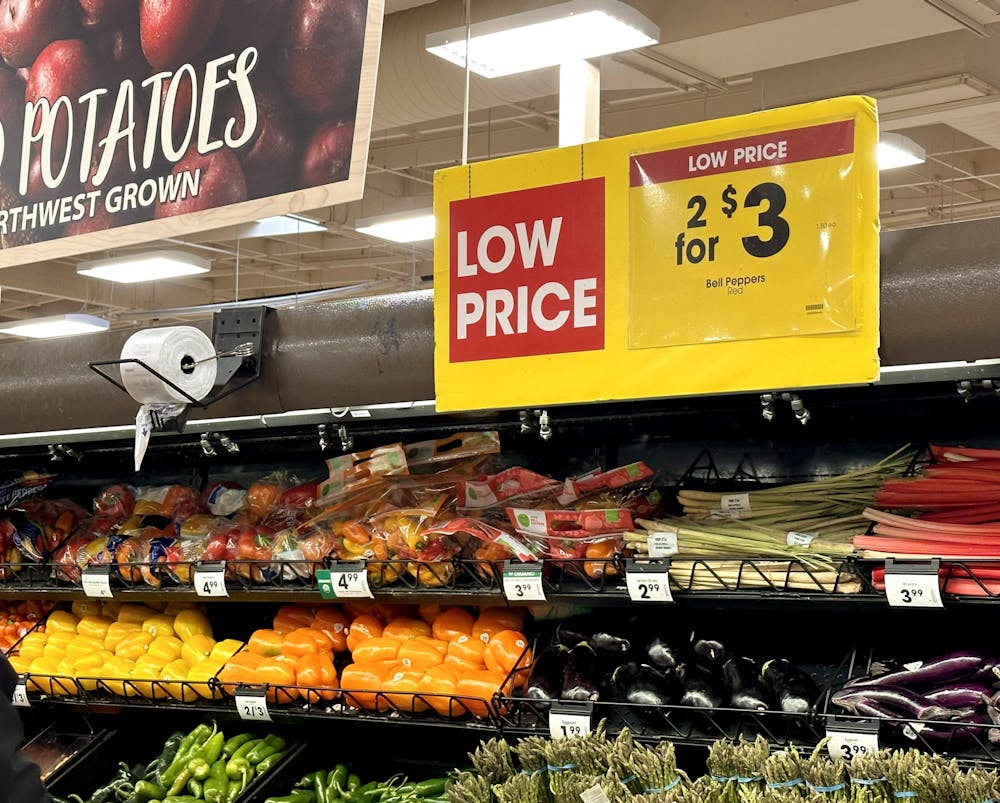In recent years, food prices have been creeping upward, and Bellingham residents are noticing this change. Local and chain grocers are growing accustomed to seeing a limited supply of stock.
Much of the root cause of supply chain issues can be traced to the COVID-19 pandemic. These pre-existing issues were then exacerbated by the war in Ukraine and multiple natural disasters.
During the spring of 2022, major damage to rice paddies occurred due to flooding in China, one of the largest importers of rice. A combination of unfortunate circumstances led to crops failing, making the transportation and trading of goods even more difficult. This in turn contributed to the nationwide food shortage and high prices we’re seeing today.
Bethany King, a research economist at Western Washington University’s Center for Economic and Business Research, provided insight into how worldwide environmental issues are impacting the supply chain.
“Near the Pakistan region, they had a lot of flooding, and they also had droughts,” King said. “And that’s also an area where a lot of our grains are produced. So not just war but also natural disasters destroyed a lot of crops this year.”
Joe Neubauer, an employee at the Fred Meyer located in Bellingham, has seen these shortages firsthand at her store.
“I would say eggs, peanut butter and pastas have been very low on our shelves or sometimes out of stock,” said Neubauer.
She later added that though their store always ends up receiving shipments, they aren’t always timely. The store may be out of these items for a day or less, depending on this inconsistency.
Keeping livestock healthy is also a recent problem. Due to the avian flu, chicken population numbers are dropping, causing a shortage of eggs, which means prices rise to compensate.
“They’ve had to destroy a lot of chickens to try to protect the remaining ones. That's true in layer houses as well, so it hit the egg industry pretty seriously,” said Hart Hodges, director of the Center for Economic and Business Research.
Some Bellingham residents have had to make the choice between organic foods and cheaper alternatives. Others are resorting to shopping at cheaper stores and cooking more simple meals. The latter has also become difficult, as even common household items and ingredients have become more expensive. From 2022 to 2023, there was an 18% price increase in grains and pasta. Prices of dairy and eggs have also increased tremendously in the past year; specifically, consumers have seen a 21% spike in costs.
“Sometimes, I won’t buy things if it’s too expensive. I would like to buy organic, but I can’t because the normal stuff is cheaper,” said Emili West, a second-year student at Western.
It isn’t hard to see that prices right now are at a peak compared to recent years. However, since December, there have been slight decreases. We may start to see those prices trickle back down soon.
“You might not necessarily see the sticker price on the shelf coming down, but you’re going to see sales; that’s how deflation actually happens in a grocery store,” King said.
She says that companies may start to overproduce in preparation for shortages and start to put their items on sale rather than lower the price altogether.
Sophie Bechkowiak (she/her) is writing for the opinion beat at The Front this quarter. She is in her fourth year at Western working towards a journalism news/editorial major and a philosophy minor. On her days off she enjoys thrifting, art, watching documentaries and goofing around with friends.
You can reach her at sophiebechkowiak.thefront@gmail.com.






